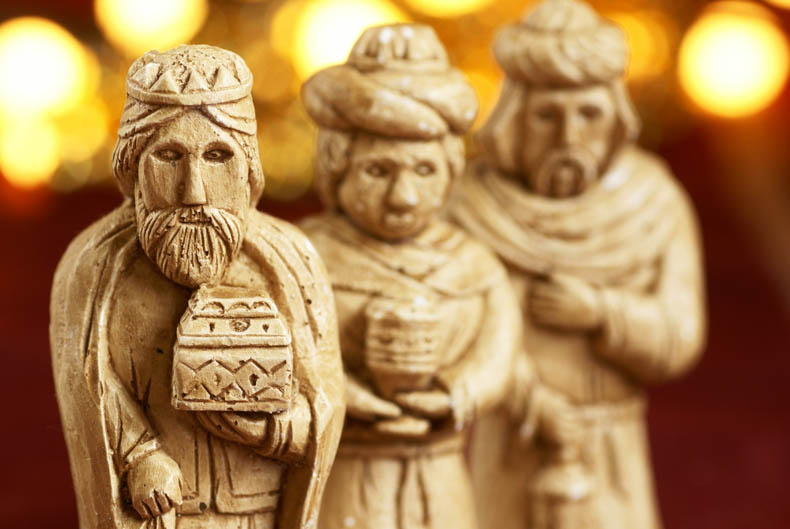 This time between Christmas and Twelfth Night, when the three kings arrived at the stable, is a good time to think about my love of Amahl and the Night Visitors, an operetta by Italian-American composer Gian Carlo Menotti. In the story, the three kings stop for the night at the house of a poor single mother and her child, Amahl, who walks with a crutch. The local people are poor, but they come to the house to sing and dance and bring presents for the kings to take to the baby. Amahl has nothing, except his crutch; he offers it; “but you can’t, you can’t!” “I walk, mother. I walk, mother.” The kings celebrate the miracle, then take Amahl on the road with them.
This time between Christmas and Twelfth Night, when the three kings arrived at the stable, is a good time to think about my love of Amahl and the Night Visitors, an operetta by Italian-American composer Gian Carlo Menotti. In the story, the three kings stop for the night at the house of a poor single mother and her child, Amahl, who walks with a crutch. The local people are poor, but they come to the house to sing and dance and bring presents for the kings to take to the baby. Amahl has nothing, except his crutch; he offers it; “but you can’t, you can’t!” “I walk, mother. I walk, mother.” The kings celebrate the miracle, then take Amahl on the road with them.
The operetta was commissioned by NBC and had its first performance live on TV in 1951. I grew up on a recording from 1963. The role of the mother is one of those parts that I’ve felt like I was always preparing for, in the alternate universe in which I become a professional singer. (Others include the main character in the Rossini opera La Cenerentola, also known as Cinderella, and Sergeant Sarah in Guys and Dolls.) (A lot of things are different in this alternate universe–like that I’m willing to practice and I know how to act.)
I have to be the mother, because all the other solo parts in the piece are men.
While the mother is out fetching the neighbors, Amahl pesters the kings. He asks Kaspar about the box he travels with, and the king launches into an enthusiastic accounting of its contents.
This is my box
This is my box
I never travel without my box.
In the first drawer I keep my magic stones:
One carnelian against all evil and envy,
One moonstone to help you sleep,
One red coral to heal your wounds,
One lapis lazuli against quartern fever,
One small jasper to help you find water,
One small topaz to soothe your eyes,
One red ruby to protect you from lightning!
I can sing along with almost all of Amahl. I know every odd melodic turn of Kaspar’s discourse on stones and their medicinal powers. Over the years I’ve seen a lot of those rocks in museums, and Menotti’s music often pops up as a mental soundtrack in geology collections.
But, until yesterday, it had never occurred to me that I didn’t know what one of the conditions was.
The scene: I’m nearing the end of Bring Up the Bodies, the second book in Hilary Mantel’s fantastic series about a close advisor to Henry VIII. The main character, Thomas Cromwell, is in the great hall at the Tower of London, where Anne Boleyn is about to be put on trial.
He bows to the foreign ambassadors; but where is Chapuys? Word is passed forward, he is suffering from a quartan fever: word is passed back, I am sorry to hear that, let him send to my house for anything that might make him more comfortable. Say his fever is up today, day one: its tide ebbing tomorrow, by Wednesday he is on his feet but shaky, but by Thursday night he will be down again, as it shakes him in its grip.
“One lapus lazuli against quartern fever,” I sang to myself.
The Oxford English Dictionary on my shelf says that “quartern” is erroneous, and that Cromwell explains the condition precisely: “Quartan” comes from four, because the fever appears on the first and fourth days–what we would now call every third day. A quartan fever is one of the ways that malaria can manifest. Perhaps ambassador Chapuys had come across a malaria-bearing mosquito in his travels.
It delighted me that to realize this book is simultaneously shedding light on the history of Britain, a work of musical theater I’ve loved since childhood, and a disease that kills hundreds of thousands of people annually.
Thanks, literature.
My favorite drawer was the third one with “black sweet licorice”.